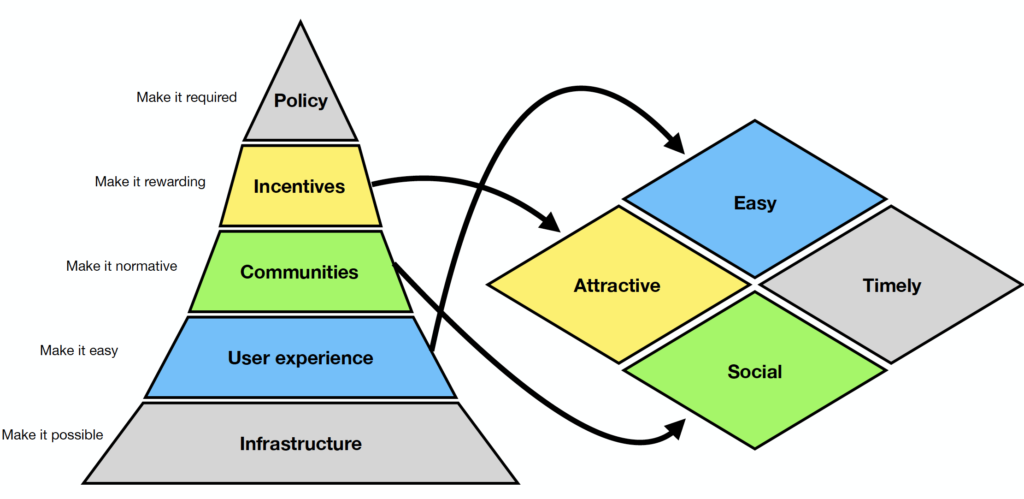
Promoting Open Science: A Holistic Approach to Changing Behaviour
Promoting Open Science: A Holistic Approach to Changing Behaviour https://opusproject.eu/wp-content/uploads/2023/05/collabra_2021_7_1_30137_76518-1024x499.png 1024 499 Open and Universal Science (OPUS) Project Open and Universal Science (OPUS) Project https://opusproject.eu/wp-content/uploads/2023/05/collabra_2021_7_1_30137_76518-1024x499.pngThe scientific community is currently facing a “reproducibility crisis” in which many influential findings are failing to replicate, and questionable research and publication practices (QRPPs) are partly to blame for this. In response, a movement of Open Science has emerged, which encompasses a range of practices that aim to increase the transparency and rigour of scientific research. However, many researchers are not embracing open practices, perhaps due to a lack of awareness of their benefits, or because of academic incentive structures that reward quantity over quality.
To promote the uptake and maintenance of open practices, this article provides a toolbox of recommendations and resources for individuals and institutions in the research ecosystem. The paper is divided into seven sections, each focused on a different stakeholder group or institution: colleagues, students, departments and faculties, universities, academic libraries, journals, and funders. For each group, the article describes the behavioural influences and incentives, as well as changes they can make to foster Open Science.
The primary goal of the article is to suggest actions that researchers can take to promote open practices, inspired by simple principles of behaviour change: make it easy, social, and attractive. Researchers can directly influence their colleagues and students to adopt open practices, and the article outlines actions they can take to achieve this. However, institutions also play a key role in promoting Open Science, and the article recommends ways in which individuals can influence institutional decision-makers to enact change.
The key behaviours that the article suggests are critical to Open Science are preregistration, preprints and open access publication, publicly sharing open and usable data and code, and conducting replication studies. By adopting these practices, researchers can increase the transparency and rigour of their research and contribute to a more open research culture.
In conclusion, Open Science is a movement aimed at increasing the transparency and rigour of scientific research, and the adoption of open practices can help to address the reproducibility crisis. This article provides a toolbox of recommendations and resources for individuals and institutions to promote the uptake of open practices, with a focus on making it easy, social, and attractive to do so. By adopting open practices, researchers can contribute to a more transparent and rigorous scientific community.
Original article can be found here.
- Posted In:
- Open Science News




